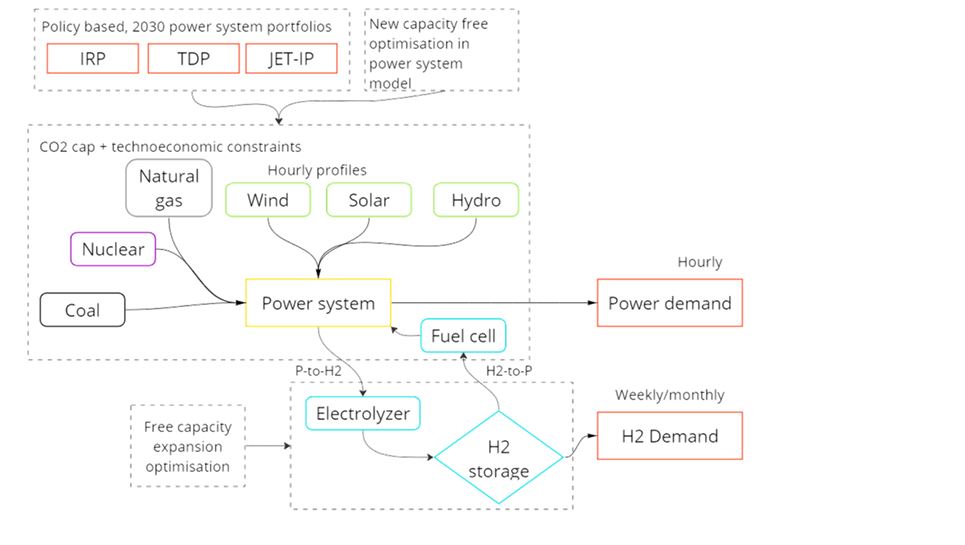Grid-connected Green Hydrogen in South Africa by 2030?
CRSES, in collaboration with the University of Groningen, recently published a journal article investigating the prospects of grid-connected green hydrogen production in predominately fossil-based countries like South Africa. The paper specifically investigated the feasibility of meeting the Hydrogen Society Roadmap’s goal of 500 kt green hydrogen production by 2030 in South Africa. It found that this is not technically feasible if only grid-connected electricity is used, as it will require massive additional wind and solar capacity for which the grid infrastructure will not exist by 2030. Grid connected grey hydrogen production by 2030 in SA was found to be technically feasible but not cost competitive. Should we therefore discard the idea of grid connected hydrogen in SA? No, with rapid increase in renewables in SA, the situation could look much more positive by 2040. Initially targeting export regions with lenient emission factor standards could be an important intermediate step.


Is fixed-tilt PV still the cheapest configuration?
CRSES recently contributed to a conference article exploring the assumptions around PV tracking technologies that are made when projecting production for capacity expansion models. The study surveyed industry experts to establish reasonable cost assumptions in the South African context and then calculated LCOE values for various PV system configurations in all of South Africa’s renewable energy development zones (REDZs). It was shown that while some planning documents still relied on PV production from fixed tilt installations, the least cost option has shifted to single axis tracking (SAT) plants. This affects both the shape and amplitude of the production curves that should be used for planning.
Feasibility Study of 5 MW Biomass Power Station
A 5 MW wood-fired power station for Stellenbosch which can produce dispatchable power on a near continuous basis, irrespective of the weather conditions or time of day, makes this form of power generation an ideal component in the mix of renewable power generating options. Stellenbosch is geographically well positioned to supply biofuel to this power station for the next 20 years and beyond. The study will show that the technology and expertise exist in the Western Cape to engineer, procure, and commission biomass-to-energy power plants of world class standard and reliability to generate power at a significantly lower levelized cost of electricity than its diesel-driven or PV solar-charged battery storage counterparts.
Capacity building project
The ARUA network partnered with the Grand Challenges Research Fund (GCRF) – a £1.5 billion fund that supports cutting-edge research that addresses the challenges faced by developing countries. Each ARUA CoE received an award to build the research capacity of African researchers.
The ARUA CoE in Energy has set out a programme of activities where young African researchers will be afforded the opportunity to enhance their research skills and capabilities. This will firstly be done through some of the structured courses designed and presented by the African Centre for Scholarship at Stellenbosch University, and secondly by giving opportunity for ‘learning-while-doing’ – where young researchers will participate in research projects and learn from seasoned African academics while doing so.
Through this programme, the ARUA CoE hopes to contribute toward the development of promising young African academics, strengthen renewable energy research on the continent, and build lasting partnerships between African institutions.


